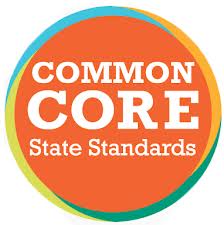|
ESEA Reauthorization: Too Many Cooks?
 It has now been nearly eleven-and-a-half years since the Elementary and Secondary Education Act (formerly known as "No Child Left Behind") was signed into law, and nearly five years beyond the close of the window during which the bill should have been reauthorized, which is to say, essentially rewritten and enacted anew by Congress. Signed into law by President George W. Bush in January, 2002, the strongly bipartisan law established a deadline of 2014 for the achievement of universal proficiency in English language arts and mathematics. At the time, few believed the law's testing and accountability provisions would survive intact beyond two presidential inaugurations and the swearing in of 5 new Congresses. Yet, here we are, on the cusp of 2014, and the nation's most significant federal education law has yet to be reformed. The ESEA quagmire has afforded the Obama Administration an opportunity to exert substantially greater influence over the formation of national education policy. The White House has accomplished this end by trading off waivers - exemptions from some of the existing law's testing and accountability provisions - for commitments on the part of states to enact reforms favored by the White House, and transforming simple formula grant programs into competitive grant competitions, such as Race to the Top, where the Administration draws up the rules. While even some Democrats - among them, California State Superintendent of Public Instruction Tom Torlakson - have groused over a putative usurpation of Congressional authority, the Administration's response has basically boiled down to: Don't blame us for the inability of Congress to do its job. Indeed, few Congressional failings offer starker evidence of the legislative gridlock resulting from ever-increasing partisanship than the inability of federal lawmakers to fashion a collaborative ESEA makeover. The law was originally endorsed by leaders of both parties, and received overwhelming support from rank-and-file members of Congress on both sides of the proverbial aisle. But that was then. Last week, no fewer than three ESEA reauthorization bills were introduced - two in the Senate, and one in the House of Representatives. Senate Democrats have fashioned a bill authored by Health Education Labor and Pensions Committee Chair Tom Harkin (D. - Iowa) that provides a legislative foundation for current ESEA waivers. States that have not been granted waivers - California among them - would be required to develop a new set of student achievement goals accompanied by an accountability plan. One feature of the proposed legislation that is likely to draw widespread interest is a provision requiring teacher evaluations to be based, in part, on student achievement, as a condition for the use of Title II, Part A professional development funds. That particular element is softened, however, by accompanying language indicating that the intended purpose of such data is to inform professional development activities rather than teacher retention and termination decisions. Sections of the current law relating to private schools appear to remain largely intact in the Harkin bill, the full text of which can be accessed, here. By contrast, a second Senate bill authored by Senator Lamar Alexander (R. - Tennessee) reflects a disposition to unwind federal leverage in favor of restoring greater autonomy to states and local school districts. As an example, the bill would prohibit the U.S. Department of Education from mandating specific tests, standards, or accountability systems. Moreover, the bill would not require student achievement data to be used as a component of teacher evaluation. And, while the Alexander bill includes a Title I school choice provision affording potential alternatives to children trapped in persistently under-performing schools, it is limited to public school options. A summary of the Alexander bill can be accessed, here. A reauthorization bill introduced by House Education Committee Chair John Kline (R. - Minnesota) rounds out the troika. Writing about the measure on the Politics K-12 blog, Alyson Klein offers the following observation: Here's the interesting thing about the Kline bill: It goes for maximum state and local flexibility when it comes to funding, accountability, and school improvement, but when it comes to teacher evaluations, it is arguably the strongest-and the closest to the Obama administration. Like the ESEA waivers, the bill would call for districts to develop teacher evaluations based on student outcomes and they would have to be used in personnel decisions as determined by the district, such as promotions and hiring. That's different from Senate Democrats' approach-and a key contrast with Senate Republicans.
As is true of the Alexander bill, the proposed House Republican legislation would prohibit Washington from imposing any conditions relating to standards and assessments upon states. Of the three measures, the Kline bill is probably the most private school friendly. For example, Title II, Part A professional development funding supporting programs and activities designed for private school teachers and administrators would be based on a school districts full formula-based allocation, rather than restricted to that percentage of the allocation designated by a district for professional development. The full text of the Klein bill can be accessed, here. In stark contrast to 2001, at which time NCLB was on the Congressional drawing board, no Democrats have signed onto the Klein bill, and no Republican senators have indicated support for the Harkin bill. While the competing pieces of legislation will, undoubtedly, revive a discussion of federal education policy, it is highly unlikely any of them will become law. The long wait continues. |
|
Common Core State Standards Encounter Pushback
 For better or for worse, the No Child Left Behind Act succeeded in shining a bright and persistent national spotlight upon student test scores. Yet, among the many criticisms leveled at the federal education law was the lack of uniformity among the states with respect to what schools were trying to accomplish and how progress toward the achievement of proficiency was assessed. Certain states were accused of "dumbing down" standards in order to demonstrate superior gains in student achievement, while others complained that they were being penalized for having adopted more rigorous standards. To address those issues, the National Governor's Association and the Council of Chief State School Officers (CCSSO) joined forces to "provide a consistent, clear understanding of what students are expected to learn, so teachers and parents know what they need to do to help them." Launched in 2009, the Common Core State Standards Initiative (CCSS) not only endeavored to create a common yardstick for measuring student achievement across states, but to define in operational terms what it means to produce young people who are "college and career ready." A brief introductory video appears below:  | | Common Core State Standards: A New Foundation for Student Success |
The project struck a receptive chord. To date, only five states remain uncommitted to adopting the standards: Alaska, Minnesota, Nebraska, Texas and Virginia. And while adoption of the standards will be mandatory for public schools located in participating states, a number of private school organizations have shown considerable interest in exploring, and in some cases adopting, or adapting the standards. As states move closer to the actual date of adoption, various concerns have begun to mount over issues such as loss of local control, cost of implementation, lack of sufficient teacher training, and digital test taking. Pushback has been evident, and is not confined to any particular portion of the political spectrum. Among those who support the basic thrust of the initiative, the prevailing concern is lack of adequate preparation time in advance of implementation. Noting that the CCSS "... will require states to change just about everything: curriculum, principal and teacher training, textbooks..." a recent New York Times editorial cautioned that, "...the first evaluation will be partly based on old tests that have nothing to do with new learning standards. This could undermine confidence in the reform and give teachers an incentive to ignore the new curriculum." To prevent such an outcome, the Times called upon the U.S. Department of Education, "to give the states some flexibility so that teachers - who themselves are under pressure to meet evaluation standards - can adjust to the new curriculum." The call for flexibility has been expressed by the CCSSO, itself, which has identified three areas in need of consideration by the USDE as states transition into the Common Core framework: accountability, teacher evaluations, and tests. While some have called for a moratorium on the implementation of "high stakes" tests linked to the new standards, the CCSSO wants the administration of the tests to proceed as planned - they are to be initiated in the spring of 2015 - but without accompanying accountability. Such flexibility would almost certainly be welcome in California, which, having failed to receive waivers from No Child Left Behind's testing and accountability provisions, is concerned about the readiness of teachers to transition to a new curriculum grounded in the CCSS. Such concern is underscored by Governor Brown's recent designation of $1 billion dollars of "one-time surplus revenue" for CCSS teacher preparation. Two consortia of states are currently developing CCSS assessment instrumentation. California has committed to utilize tests developed by the Smarter Balanced Assessment Consortium, to be administered via tablets and/or computers (a factor raising additional questions about sheer technological readiness, and cost). The consortium recently released online sample tests designed to assess English language arts/literacy and mathematics proficiency at grades 3-8, inclusive, and 11. Interested readers can see what software requirements must be satisfied to access the sample tests, here, and may then click the "Explore the Smarter Balanced Practice Tests" link of the same page to access additional instructions and take a sample test. Examining some of the questions may help to explain why jitters are likely to mount as 2015 draws ever closer. |
|
ONPE Announces New Webpages
 From the U.S. Department of Education's
Office of Non-Public Education
New ESIP Webpages The Office of Non-Public Education (ONPE) is pleased to announce that the new Equitable Services Implementation Plan (ESIP) webpages are up and running. The pages are specifically designed to house content related to the goals of ESIP in one convenient location. Equitable Services Implementation Plan (ESIP) Components ESIP is the U. S. Department of Education's plan to assist State and local educational agencies (SEAs and LEAs) to improve the implementation of the equitable services requirements under the Elementary and Secondary Education Act (ESEA) and the Individuals with Disabilities Education Act (IDEA) for eligible students enrolled in nonprofit private elementary and secondary schools and, as applicable, their teachers and parents. We have organized the new webpages to reflect the ESIP goals. Webpage Framework
OutreachCommunications LettersListserv Messages FAQsConference Call DetailsPromoting and Encouraging Promising PracticesStates with Private School Working Groups Examples of Promising Practices Transparent Processes Technical AssistanceWebinarsOther Activities MonitoringNew and Additional Information
As new information is available under each of the ESIP goals and subcategories, such as hyperlinks for webinar registration, we will update the website. Thus, we encourage you to visit the pages regularly and provide us feedback about the ESIP webpages at ONPE@ed.gov |
|
Quick Takes
 Open-Access Journal En-Route From AERA Open-Access Journal En-Route From AERAThe nation's most prestigious education research society has announced plans to publish an open-access journal to debut early in 2014. The American Educational Research Association will label the online journal, AERA Open. The term 'Open-access' denotes the universal availability, via the internet, of peer-reviewed scholarly articles, typically at no cost to viewers. A 2012 study found that roughly 17 percent of the 1.66 million scholarly articles cataloged by a leading index in 2011 were available via open-access. The study's authors concluded that open-access "...is disrupting the dominant subscription-based model of scientific publishing, having rapidly grown in relative annual share of published journal articles during the last decade." The volume of scholarly articles and research findings to become available through open-access publishing can only be expected to grow, most certainly in the domain of education. As reported by Education Week's "Inside School Research" blog, a current Obama Administration policy directive requires all federal agencies spending at least $100 million on research and development to create plans supporting the public dissemination of their findings. The directive would apply to the Institute of Education Sciences, the research arm of the U.S. Department of Education. "Brokers of Expertise" WebsiteIf you are interested in learning more about the Common Core State Standards (see article, above), where might you go to get "up to speed?" One excellent source of information comes via the California Department of Education's Brokers of Expertise website (BOE). BOE is a hub offering more than 60,000 online resources geared to California educators. In addition to accessing a wealth of information, users can self-select into various communities, and can participate in a variety of online learning opportunities, all at no cost. To get started, visit the BOE homepage and register by clicking the "Request Account" button in the upper right-hand portion of the page. Approval typically takes a day or two, but you can begin exploring the site without logging in. (Once you've established an account, you'll be able to bookmark and manage resources from within the site.) BOE offers several "Common Core Professional Learning Modules" designed "to help educators transition to the Common Core State Standards." By September of the current year, the series will feature at least ten such modules, each of which will take an estimated 2-6 hours to complete. (Users can proceed at their own pace, and in their own place.) Accompanying support materials in the form of participant packets and PowerPoint slides are easily downloadable. The BOE site is well worth a look. Check out some of the available resources, and be sure to browse the user communities, here. You might just discover one or more groups that have your name written on them, and offer an excellent means of participating in communities of interest and practice that span schools and school types. Character Matters Conference The University of San Diego's Department of Learning and Teaching will host the 17th annual West Coast Character Matters Conference, June 26-27, 2013. A pre-conference seminar titled "Medal of Honor: Lessons of Personal Bravery and Self-Sacrifice" will take place the day prior to the conference (June 25). The conference itself will feature, "a variety of experienced teachers and counselors [who] will share their ideas, suggestions, and experiences on the why and how to implement 21st century character traits and social-emotional skills in schools and classrooms." Enrollment will be limited to 60 educators. Pre-registration is required - there will be no registration at the door - and must be completed prior to June 17. For additional information, visit the conference website, phone 619-260-2250, or send an email to: character@sandiego.edu Or, you can register online, here. Read the CAPE Outlook! The June, 2013 edition of the CAPE Outlook newsletter features a cover story on the recently convened National Policy Summit organized by the American Federation for Children. The two-day event, which took place in National Harbor, MD, provided a status update on a year of robust accomplishment for the school choice movement. California legislators might take interest in the program's keynote address, delivered by Indiana Governor Mike Pence, in which it was reported that the Hoosier State's top education finance official has projected $5 million in savings to the state's public schools this year as a result of Indiana's scholarship program. Other current CAPE Outlook articles address school safety and partnerships between private schools and local law enforcement agencies, provide access to a video of a U.S. Department of Education hosted webinar on federally funded professional development opportunities for private school teachers, report on education tax-credit developments in Alabama and Iowa, point to a link between physical activity and academic achievement, and feature yet additional items of interest to the nation's private school community. The CAPE Outlook newsletter is published monthly throughout the school year by the Council for American Private Education (CAPE). CAPSO is CAPE's California state affiliate. |
|
Shower Curtains in Jerusalem
 In 1988, I had the privilege of playing a key role in organizing an international professional conference that took place in Israel. Planning the week-long event was a fascinating, if daunting process requiring several years of advance work. My involvement afforded many an opportunity to meet and interact with a fascinating array of Israeli government officials, business people and fellow educators. The experience taught me a great deal about cultural differences at the institutional and national levels, and the pitfalls inherent in attempting to transplant programs across international boundaries, without appropriate adaptations. Here's but one example. The conference was to be situated at the Hebrew University of Jerusalem, a venerable institution of higher learning founded nearly a century ago, that counts such luminaries as Albert Einstein and Martin Buber among its founders. While no stranger to the hosting of academic conferences, the Hebrew University had never accommodated the sort of event we had in mind. To make participation affordable for educators (who would be called upon to shell out upwards of $1,000 just to get there) we wanted to give participants the option of residing on campus in the student dorms, as an alternative to lodging in our flagship facility, the neighboring Hyatt Regency Hotel. An advance visit revealed the dorms to be spartan, but acceptable, with one caveat. The communal bathrooms lacked shower curtains. We doubted that this would prove bothersome to men, but believed that considerations of modesty and privacy warranted the provision of such amenities for our female participants. And here we encountered just one of the innumerable challenges demanding a solution in advance of the event. Buber and Einstein were, obviously, far too involved in philosophy and physics to do much thinking about the need for a university conference office, or a director of conferences, for at the Hebrew University no such entities existed. The closest thing to a "one stop shopping" address to deal with our needs was the business office. And there, we ran up against a mind-set that stood in stark contrast to what one typically encountered back home in the good ole' U.S. of A. In America, when one asks something of a business, no matter how difficult, the response is likely to be, "Of course we can do that!" regardless of whether the respondent is actually convinced he/she can make good on the promise or not. The American entrepreneur will say "yes" first, and then figure out how to deliver. In Israel, that formula was stood on its head. Any unconventional request was likely to produce a reflexive response of, "That's impossible!" Only after explaining why a particular request can't conceivably be fulfilled will the naysayer begin to consider how to do the "impossible." It must be kept in mind that while Israel had begun its transition from a quasi-socialist to a free-market economy more than a decade earlier, people's thinking and behavior aren't subject to change as readily as the enactment of laws. In the mid-1980s, Israelis remained subject to culture lag. It was no mean feat to find an entrepreneur willing to rent and install shower curtains, an arrangement necessitated by the university's wholehearted lack of interest in providing permanent shower curtains. And while I became painfully aware that my graduate education - whose focal point was comparative and international education - included absolutely no provision for dealing with such a challenge, somehow, some way, we managed to locate someone who had a friend whose brother-in-law could connect us with a guy... Long story short: we managed to fill the dorm rooms with hundreds of adventurous, bargain-hunting educators who hadn't a clue as to what it took to provide them with privacy in the shower stalls. What in the world does any of this have to do with private, K-12 education? Unlike public schools, if private schools fail to "provide shower curtains," they will cease to exist. This is true of all private schools, whether religiously oriented or secular, for-profit or nonprofit. For schools affiliated with CAPSO-member organizations, providing for the needs of consumers is necessary, but insufficient. Mission- and/or vision- centered as they are, our schools must also remain faithful to their respective identities and purposes. In order to sustain themselves, our schools must adequately and reliably meet the expectations of various participant and stakeholder groups - students, faculty, administrators, board members, donors and, particularly, parents - who may, and often do present divergent and, at times, conflicting needs. When faced with such expectations, our schools need not only know when to say 'yes' and when to say 'no', but how. Effective school leaders seldom say 'yes' or 'no' reflexively. Saying 'yes' absent due deliberation may reinforce expectations that are beyond a school's capacity to deliver. Saying 'no' too quickly may short-change either or both the student and the school. Schools competing for scarce resources in a market economy are naturally inclined to say 'yes' to potential participants. Tempting as this may be, mission- and vision-driven schools must take pains to balance opportunity with consistency. A school cannot be all things to all people and long maintain a clear sense of identity. Saying 'yes' to meet the needs of an individual, family or group sometimes requires saying 'no' to others. Much as we'd like every decision to produce a "win-win" outcome, at times that's simply not in the cards. Needless to say, supplying an education and providing an environment appropriate to the varying needs of a critical mass of participants is a considerably more complex and challenging endeavor than furnishing shower curtains. Nevertheless, the "Of course we can!" and "That's impossible!" mindsets are, I think, apt. The successful school leader is well aware that "he who hesitates is lost," but also knows that "fools rush in." Wise leaders possess the ability to balance confidence and caution without sacrificing decisiveness and falling prey to inaction. As we approach the conclusion of another school year, it may prove worthwhile to reflect upon the manner in which we - individually and collectively - acknowledge and respond to the needs of others in our professional roles. And, as June fades into July, it is my hope that each of you, whose wisdom and hard work provide so much for so many, will create opportunities to indulge your own needs over the course of what will, inevitably, prove to be a short summer. May you return to your offices renewed, reinvigorated, and resolved to create the best year yet, in 2013-14! Ron Reynolds |
|
E-Mailer on Hiatus
The next edition of the CAPSO Midweek E-Mailer will be published August 21, 2013.
|
|